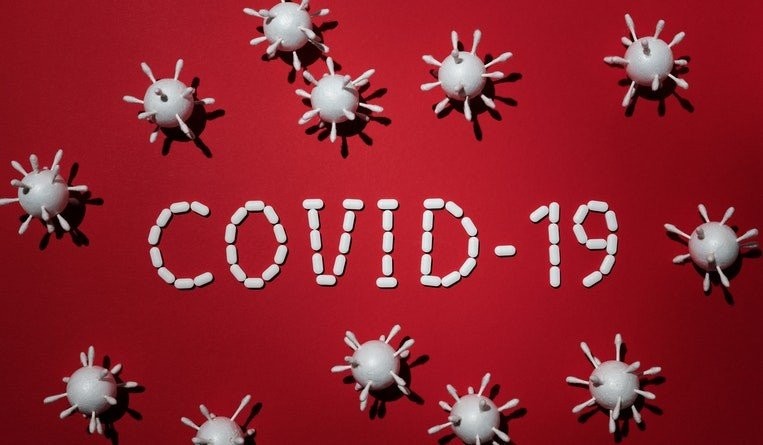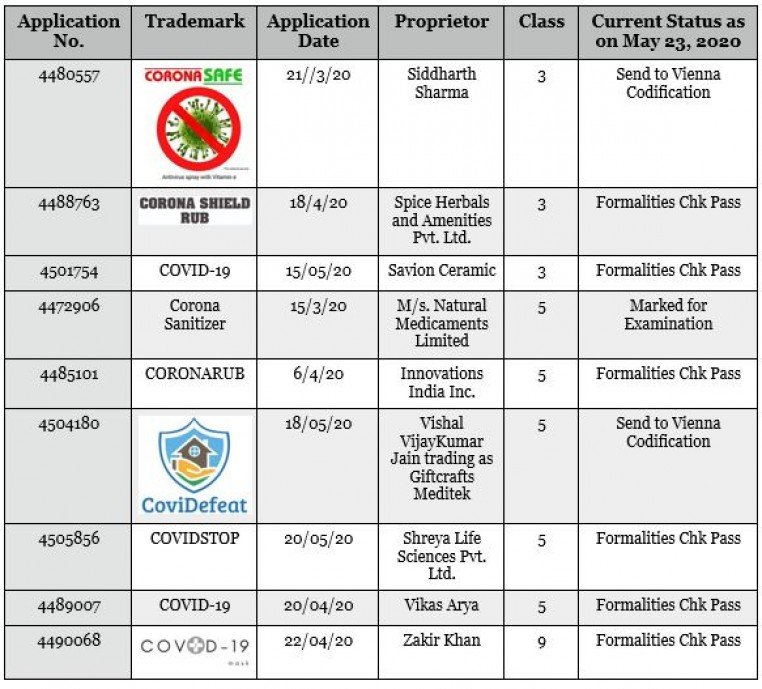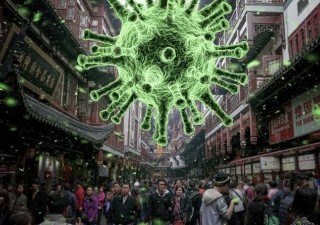Registering COVID-19 Trademark Applications - Illegal or not?
31 May 2020

Medical professionals have scrambled to keep up with the novel coronavirus Covid-19. But the virus is rife in the world of trademark professionals, too. Yashvardhan Rana explores whether it is possible to register words like “corona” and “Covid” in India.
In the months since the lockdown came into force, you no doubt have heard of persons or entities who have applied to register trademarks at India’s Trade Marks Registry, which contain the terms Covid, corona and variations on the term corona. The applications cover various goods and services starting from apparel to magazines, to financial/venture capital services, from medicines and pharmaceutical products, to hand sanitizers and even for an anti-virus software! This rush to file applications to capitalize on a trending term isn’t new.
An Outbreak of Recent Filings
Given that the terms coronavirus and Covid-19 have been a component of our daily lives for some time, it provides a robust opportunity for businesses to take advantage of the crisis by seeking trademark protection. By the look of the applications, most of the applicants don’t understand Indian trademark law and are simply hoping to exploit the present crisis. These attempts are not only in bad taste, but are also unlikely to steer to trademark registrations.
Fortunately, most of these applications will fail. The Trade Marks Registry doesn’t simply reward the primary applicant of a mark with dishonest adoption. Rather, to secure a trademark registration in India, a trademark applicant must either be using a mark in commerce on specific goods or services or have a bona fide intent to use the mark on such goods or services and not merely have an intention to reserve rights in the mark. Therefore, placing a slogan or adding a particular element comprising of the terms Covid, corona or variations of the term corona on a product will generally not be sufficient to secure a trademark registration, nor will it be considered trademark use.
Can you actually trade mark COVID-19, CORONA or CORONA formative marks?
The answer is that it depends, as each jurisdiction has different set of rules and practices. However, in India, the Trade Marks Registry may reject an application to register a trademark in certain circumstances. According to Section 9 of the Trade Marks Act, 1999, Absolute Grounds for Refusal, states that:
1) The trademarks-
a) which are devoid of any distinctive character, that is to say, not capable of distinguishing the goods or services of one person from those of another person; …
c) which consist exclusively of marks or indications which have become customary in the current language or in the bona fide and established practices of the trade, shall not be registered; or
2) A mark shall not be registered as a trade mark if-
…
c) it comprises or contains scandalous or obscene matter or its use is contrary to the established practices of law.
The term “scandalous” is not defined in the Trade Marks Act, so the Trade Marks Registry will apply the dictionary meaning of the word (i.e. disgraceful to reputation; shameful or shocking). Whether something is “scandalous” is a matter of opinion, but it is sufficient to say that if the mark offends a particular class of persons, rather than a majority of persons, then registering such marks would in turn prove to be detrimental to social morality and thus, such malicious registrations would infringe upon others’ unregistered trademarks, copying others’ well-known trademarks in turn diluting the distinctiveness of a famous brand with prior commercial use, etc. Also, given that the World Health Organization has declared the Covid-19 outbreak to be an emergency, the Trade Marks Registry might be satisfied that granting registration to such marks would be detrimental to the moral compass of the society at large.
Opportunistic Trade Mark filings in India
A few of the active/ongoing opportunistic Covid-19/coronavirus trademark applications are as follows:

Source: Public Search of Trade Marks
It is pertinent to mention that many of the applications listed above have been filed on a proposed-to-be used basis and in relation to pharmaceutical apparatus, hand sanitizers, antivirus software, medicines for human consumption and allied goods by individuals eyeing to capitalize on being clever. I would say that such endeavours are in poor taste, are ill-advised and a complete waste of time, in turn increasing the backlog of cases for the Trade Marks Registry and, thus, such distasteful filings should be stopped with immediate effect.







